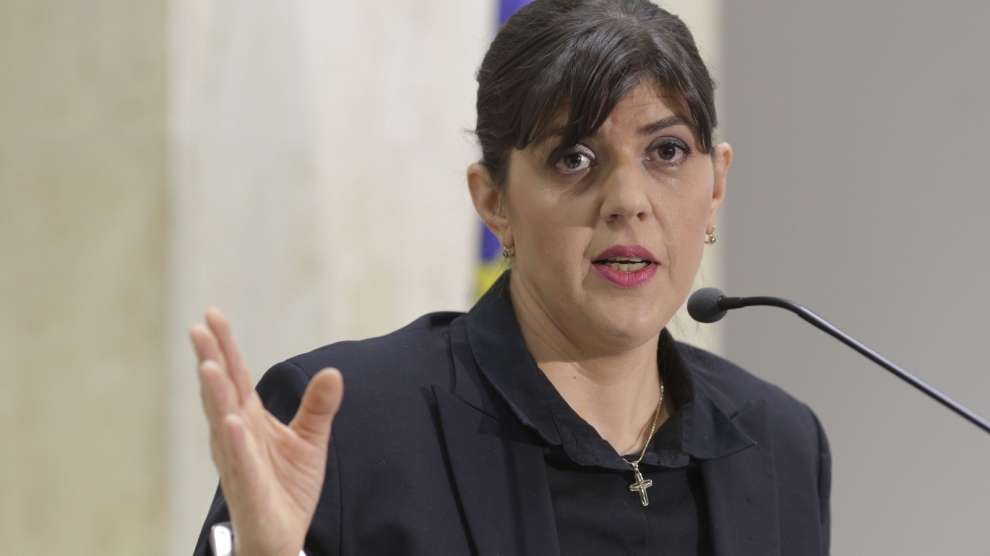A selection of articles about emerging Europe published elsewhere this week, all of which caught our eye and all of which are well worth your time. Listing them here, however, does not necessarily mean that we agree with every word, nor do they necessarily reflect Emerging Europe’s editorial policy.
The latest failure to break the impasse between Kosovo and Serbia underscores the EU’s foreign policy failings, writes Matthew Karnitschnig in Politico.
—
Laura Codruța Kövesi (pictured above), the highly effective former head of Romania’s anti-corruption office and a candidate to fill a similar role at the EU level, is now the subject of a smear campaign and trumped-up criminal charges. Her case is a perfect example of why Europe needs stronger mechanisms to uphold its values, writes Guy Verhofstadt.
—
Every Saturday, for the past five months, thousands of people have gathered on the streets of Serbian capital Belgrade to voice their dissent against President Aleksander Vučić’s authoritarian tendencies and increasing control over the country’s media.
—
Young Georgians wanting to avoid the horrors of compulsory military service are turning to religion for a rather clever way out.
—
Also in Georgia, monks have squared off against Azerbaijani border guards in a dispute over access to an ancient monastery that straddles the two countries’ poorly defined frontier.
—
A progressive mindset and a willingness to innovate across Eastern European markets makes the region prime territory to become the next big cashless society.
—
Poland faces an “attack on the family”, says Jarosław Kaczyński, chairman of the ruling Law and Justice (PiS) party. In 2015 the party swept back to power by claiming it would protect the country against refugees from the Middle East. Now Mr Kaczynski has identified a new threat: gay people.
—
Mainstream conservatives are increasingly looking to the far right for political support. In Estonia, this means far-right politicians in key government posts – and more uncertainty in the country’s relationship with Russia.
—
Thirty years ago this weekend, possibly the most ill-timed guidebook in history was published. Travellers Survival Kit: Soviet Union & Eastern Europe explained in exhaustive detail how to procure a Hungarian visa. But three months after it hit the bookshops, Hungary opened its frontier with Austria and you could walk across the border unchallenged to join the Pan-European Picnic outside the town of Sopron.






Add Comment